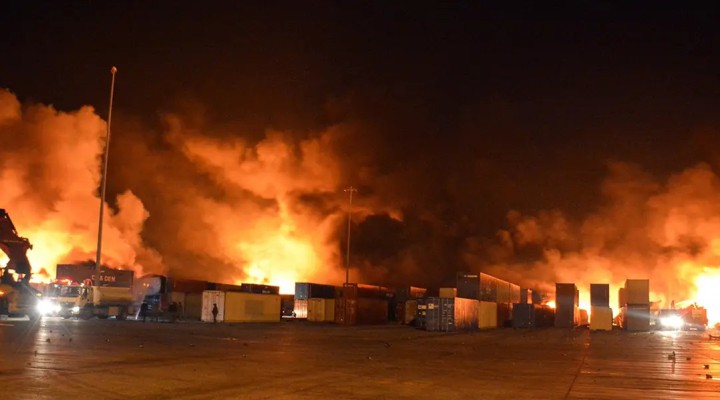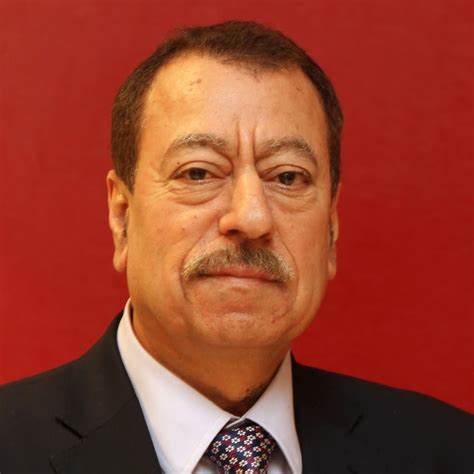
Why doesn’t Damascus retaliate? Some are hoping to trigger a Gaza-style Israeli assault on Syria
Keep up to Date & Bypass the Big Tech Censorship
Get uncensored news and updates, subscribe to our daily FREE newsletter!
Damascus International Airport was put out of service again on Sunday evening after being subjected to Israeli bombing, only hours after repairs were completed to the damage done by earlier Israeli airstrikes last month. Normal service had just been resumed, but the Israeli airforce and its controllers in Tel Aviv and Washington had other ideas.
Syria’s strategic ally Russia sufficed, as usual, with verbal condemnation of the attack on the airport. Spokeswoman Maria Zakharova described it as provocative and dangerous act which could further raise tensions in a region already ablaze because of the war in the Gaza Strip.
This routine condemnation was an almost verbatim repetition of previous ones issued more than 350 times after similar Israeli raids on Syria. Every time, the same form of words has been recovered from the computer, reprinted, and read out (not that there were many, if any, Arab condemnations).
| Recommended Books [ see all ] | ||||
|---|---|---|---|---|
 |  |  |  |
 |
Also as usual, criticism and insults have been heaped on the Syrian government for not retaliating in kind against Tel Aviv airport and taking it out of service too.
The critics fall into two camps.
On the one side there are sincere patriots who feel angered and humiliated by the repeated Israeli attacks on Syria going unanswered. They appreciate Syria’s historic role and contribution to the Arab struggle against Israel, and do not want the attacks to continue with impunity.
The other camp includes various opponents of ‘the regime’ who are directly or indirectly linked to the US scheme to destroy and dismember the country and topple its leadership. They seek revenge for its success in having foiled that scheme and retaken control of three quarters of the country’s territory. They think retaliation for the airstrikes could trigger a massive Gaza-Style Israeli assault that might result in the destruction of the Syrian state as happened in Iraq and Libya. These include major Arab countries that participated in that scheme and funded it to the tune of tens of billions of dollars.
In Gaza, tens of thousands of people have been killed and injured and hospitals, infrastructure, and half the housing destroyed, without any meaningful Arab intervention and much of the world colluding in the genocide. This may help explain Syria’s failure to retaliate in the current circumstances, in addition to its lacking the necessary military means.
This does not justify that failure nor the Syrian leadership continuing to ‘swallow’ such affronts. I have repeatedly criticised it on this count along with its Russian ally. Russia has a joint defence treaty with Syria and military bases on its soil. But it has not reined in Israel, either by warning of serious consequences if these acts of aggression do not immediately cease, or by providing Damascus with effective air defence systems such as S-300 or S-400 missiles.
Neither does the disgraceful reaction of most Arab states to the Israeli massacres in Gaza — at best acting as ‘mediators’ or purveyors of charity — encourage the Syrians to respond forcefully to the attacks. If the mass slaughter of children, the displacement of 1.5 million people, and the denial of water, electricity, and food cannot spur 21 Arab (or 57 Muslim) states and armies into action, nor will a similar assault on Syria. Especially not when the same country that is besieging and starving Syria is actively supporting the genocide in Gaza. The US has established an airlift to supply Israel with munitions and missiles, despatched 2,000 Marines, provided it with an additional $14bn in financial aid, and deployed aircraft carriers and nuclear submarines to prepare to counter any external intervention in the war by Iran, Syria, or Hezbollah.
Retaliation will inevitably come one day, just as Hamas and other Palestinian resistance groups delivered their earth-shattering retaliation on 7 October. Many people had criticised Hamas and cast aspersions on its intentions when it failed to weigh in alongside the Islamic Jihad movement in its latest war against the occupation. It later transpired that Hamas had for three years been preparing a historic attack that would humiliate Israel’s army, shatter its standing and security, and change all the rules of engagement.
In conclusion, I can reveal that an envoy who once went to see President Bashar al-Asad asked him whether he believed in the unity of fronts and would be prepared to join in any future war. He replied in the affirmative, but on two conditions: first, that ‘other’ countries join in the war too, and secondly, that up-to-date defence systems are obtained from friendly countries. I cannot reveal what more what said.
 | Abdel Bari Atwan is the editor-in-chief of Rai al-Youm, Arabic Independent newspaper. The established author, broadcaster and former editor of al-Quds al-Arabi was born in a refugee camp in the Gaza Strip two years after the Nakhbah. Having left to Jordan in 1967, Atwan has lived most of his life in exile. Atwan has Four bestselling books: the country of world , the secret History of Alqaeda, after bin Laden, the last one Islamic State: The Digital Caliphate. |


